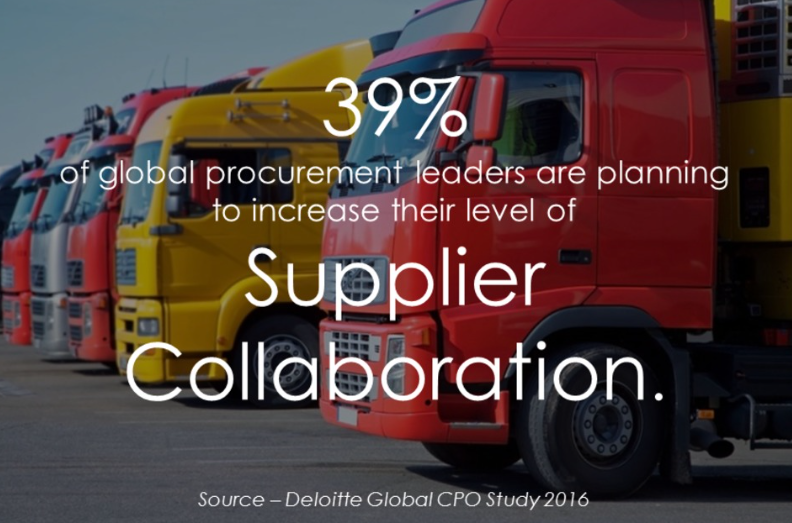Building of Supplier Alliances: Supplier relationships operating in traditional, waterfall workflow silos are still common in manufacturing companies. The Procure-to-Pay (P2P) processes tend to follow strict parameters, with a flow that’s dependent on the preceding requirements. There’s no iteration. Any deviation from the path requires procedural approval that costs time and money. Following agile workflows allow for iterations, communication and collaboration that eliminates unnecessary processes and strengthens both internal and supplier relationships.
Supplier Alliances and the Framework of Collaboration
Stemming from the traditional P2P process, today’s Supplier Relationship Management (SRM) builds upon streamlining a company’s procurement workflow using a highly configurable, integrated framework of Business Process Improvement (BPI) Solutions. Traditional procurement processes depend on mitigating factors like project and purchase order approval times, developmental controls that can spiral out of control, and invoices that are paid according to contracts that may or may not be in the current best interests of either enterprise. Even our “paperless” society depends on physical forms that must be constantly revised to conform to governmental regulations and standards. Some might argue that traditional P2P processes are fast becoming legacy processes. Do these barriers mesh with what Chief Procurement Officers deem barriers to digital collaboration?
The main barriers to the effective application of digital are data, systems and people.
The Deloitte Global CPO Survey 2017.
According to the Deloitte survey, these barriers include substandard data quality, poor systems adoptions, lack of data integration, limited analytical resources, poor skill sets and limited stakeholder endorsement and prioritization.
You can’t leverage collaborative relationships if there’s little or no synthesis of people and platform. Quality data begets improved supplier relationships that helps build collaboration and beneficial supplier alliances.
So what is Collaboration?
Collaboration is Data-Driven You have to have BPI solutions which evolve as technology advances both on-site and in the cloud. Procurement teams don’t operate with limited data or limited physicality anymore. Today’s supplier alliances demand engaging communication that doesn’t exist in a vacuum. Your suppliers may be across town, across the nation or on another continent. It’s a fast-paced world where customers won’t wait for their products–they’ll go someplace else and take your reputation with them.
Collaboration is Strategic Manufacturing industries that are slow to change from traditional P2P to progressive P2P processes often opt to have their workflows in both worlds. It’s a hybrid strategy that combines old-school floor Lean 5S concepts that sprint rapidly toward a world of scrum agility utilizing data in ways that both manufacturers and their suppliers find both flexible and valuable. The strategy is to not only eliminate what holds your procurement workflows back, but to utilize the opportunities and strengths that your suppliers can provide.
The procurement climate is changing. Now it’s time for manufacturers to ask some pertinent questions to determine whether suppliers need to be rewarded or replaced:
- Is it easy for our suppliers to provide for our company needs?
- How are we using our procurement data? Is data being integrated properly?
- Are our suppliers timely getting products to us at the right price?
- What can we do to leverage our analytics and predictive data intelligence to make our supplier relationships strategic, collaborative alliances?
If your answers dictate that your procurement data isn’t being utilized by your company in a way that facilitates improved supplier relationship, it’s time to mine the reasons why–and the reasons usually start with your current Enterprise Resource Planning (ERP) and BPI solutions.
Suite Collaborations Make for Strong Supplier Alliances
iBundle Supplier Relationship Improvement (SRI) is a set of BPI Solutions that allows you and your suppliers to qualify and quantify data with unprecedented accuracy and speed. Gone are the staid workflows where predetermination ruled the roost. iBundle SRI’s agile, seamlessly QAD EA integrated solutions, as well as most leading ERP solutions, are designed to work with and adapt to the life cycle and supplier relationships and supplier alliances of your company.
iBundle SRI’s iApprove, iPurchase, iManagePOs and iVoucher bolts-on to your existing ERP and synthesizes with the cloud for data-driven suite collaborations that allow you and your suppliers to forge strong relationships that decrease unnecessary workflows and creates opportunities for higher ROIs.
When you’re ready to further define your strategic supplier relationships, contact us. We will collaborate with you to determine how to create your strongest supplier alliances within your particular P2P.




